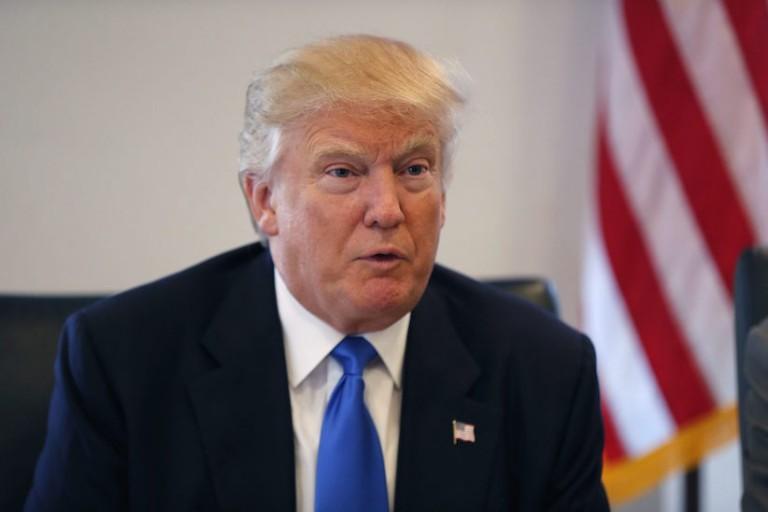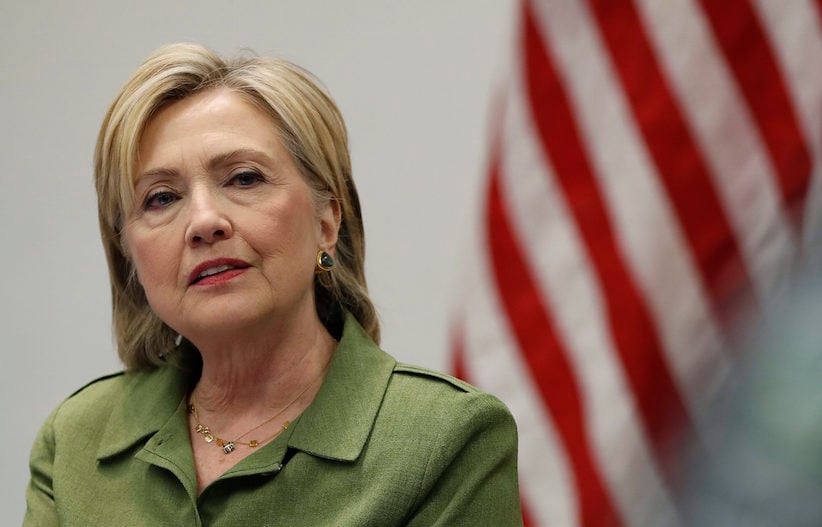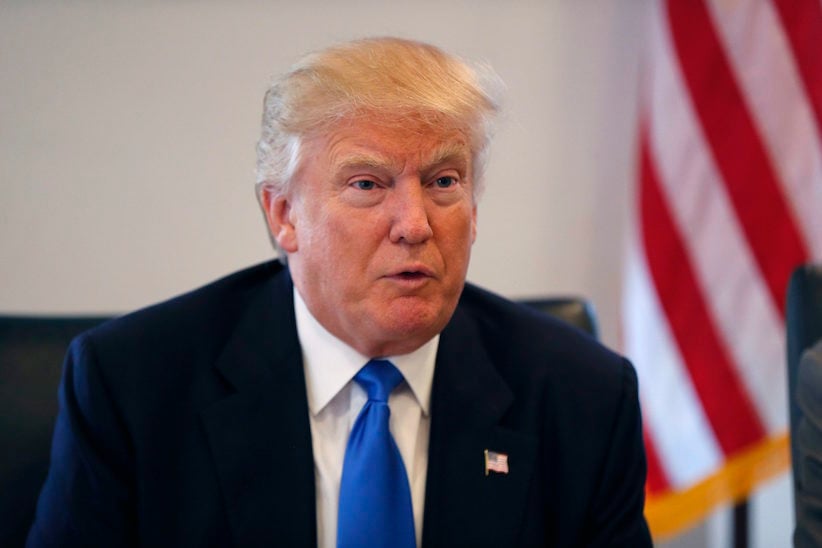Clinton, Trump, and the art of the quid pro quo
Donald Trump has criticized Hillary Clinton for transactional politics. But he should look in the mirror, too.

Republican presidential candidate Donald Trump holds a roundtable meeting with the Republican Leadership Initiative in his offices at Trump Tower in New York on Aug. 25. (AP Photo/Gerald Herbert, File)
Share

At the intersection of arguably the world’s most powerful government department and a high-glitz humanitarian charity, there stood Hillary and Bill Clinton. They’ve brought along numerous others to join them in straddling the Clinton Foundation and dealings with the U.S. State department: from top State aide (and foundation consultant) Huma Abedin to the growing list of donors who sought and/or received access to government.
Even without clear evidence of wrongdoing, the risk of conflict of interest has long hung in the air, and the Democrat nominee has pledged to limit how much it wafts over to the White House. Donald Trump has predictably whipped up accusations of payola: “It’s impossible to tell where the Clinton Foundation ends and the State Department begins,” the Republican nominee said last week. With a trove of emails recently released and the election 10 weeks away, it’s safe to expect more investigative journalism, and more protests that such scrutiny is coming at all, that it’s a witch hunt based on a few trace broom fibres.
It’s defensive and naive to grouse about attempts to explore a potential president’s flaws, weaknesses and possible conflicts—especially given the access donors got to the Lincoln bedroom when her husband was president, a thank-you gift still paying dividends two decades later.
Energy is better spent asking the same question about Clinton’s opponent, a man whose history you don’t have to comb exhaustively for his view of what scratching one’s back should render.
Few know better than Donald Trump about the expectations that come with donations, and few so demand a tat for a every tit. If elected, it seems clear that Trump would be the transactional president, the chiseller of quid pro quo as America’s new Latin seal, the leader who might just trade off a patch of New Mexico in negotiations to make Mexico pay for the border wall. (New Mexicans aren’t nice and won’t vote for him anyway, so what’s the problem?)
When Trump was asked whether he would defend NATO allies in the Baltic states against Russian aggressions, his thinking went straight into pay-for-play: if Latvia doesn’t pay, maybe not. The same rationale led him to suggest Japan was on its own against North Korea. The country is “killing” the United States on trade and is costly to defend, so why bother?
He’s emerged from a National Rifle Association endorsement meeting to spout rhetoric that ranged from right up the NRA’s alley to too extreme even for the gun lobby, by suggesting Orlando nightclub-goers should have mixed booze and Berettas. In exchange for some love from evangelical pastors, he vowed to scrap a 1954 rule limiting political speech from the pulpit.
MORE: Donald Trump is dividing evangelical Christians—a GOP stronghold

Before he was the Republican nominee, Trump has viewed his own donations to politicians as useful largely because he sees them as chits he can call in later. “When they call, I give. And you know what? When I need something from them, two years later, three years later, I call them. They are there for me,” Trump said at a primary debate last year. He even suggested he secured Clinton’s attendance at his third wedding since “she had no choice! Because I gave.” Florida Attorney General Pam Bondi, a Trump supporter, denied that the $25,000 donation she got from Trump had anything to do with her office choosing not to join a Trump University investigation, but if an exchange wasn’t the business mogul’s intent, that would run counter to his philosophy.
Even on occasions of personal charity, he’s depicted altruism not as a virtue, but rather something to complain about. “I didn’t have to do this with the money for the vets, but I decided to because I thought it was a good idea,” Trump said this spring—as though charitable donations would normally only be something he had to do.
“That might be why he is hammering this issue with Hillary and the Clinton Foundation,” says Michael D’Antonio, author of the biography The Truth About Trump. “He might find it being impossible to believe that somebody isn’t paying to play. Because in that frame of reference, that’s all that is ever going on.”
Trump’s business career was all about cost-benefit analysis and leverage, D’Antonio tells Maclean’s. That approach would extend to his own staff, who would enjoy inflated salaries but would therefore have to tolerate 3 a.m. phone calls from the boss and other high demands. “It’s: ‘I’m going to pay you a lot, and I’m going to give you more authority and responsibility than you normally might get, but in exchange I own you,’ ” D’Antonio explains. “He wants to own people. This is why he told him people who cross him are dead to him.”
The Republican nominee will feel free to ridicule and insult if he perceives somebody isn’t being nice to him; on the other hand, because he (wrongly) says Vladimir Putin has called him a genius, he’s genteel in response to the Russian President. In July, he complained via tweet that a liberal Fox News commentator who had just asked for a picture with him shouldn’t have criticized him.
https://twitter.com/realdenaldtrump/status/757699965338710016
Politics is seldom so plainly transactional. The most donors can regularly expect in return is a fair hearing, though policy reforms would be awful nice (and are too often won). A candidate has to find the secret blend of ideas and approaches to woo one side and not alienate another, a challenge he’s clearly having with his latest pretzelling on illegal immigrants.
“The idea there are members of Congress and party leaders and interest groups who have independent sources of power, I think it would be difficult to cope with,” D’Antonio says. “In another context he would buy up the property from a resistant seller.”
Perhaps some of his policy offerings to voter groups might mark the end of the transaction in Trump’s thinking, the biographer reasons: “I made the promise; you gave me your votes. Let’s move on to the next thing.” If Clinton’s dealings and links might provide four more years of smoke for journalists to investigate, a Trump presidency could bring whole ecosystems of soot.